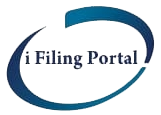REGISTRATIONS
Business Registrations
Starting a business is an exciting venture, but it comes with a series of legal steps that are crucial for compliance, protection, and long-term success. From choosing the right business structure to obtaining necessary licenses, this comprehensive guide will walk you through the process of business registration, ensuring that you navigate the legal formalities seamlessly.
1. Define Your Business Structure
Sole Proprietorship:
- Overview: Simplest form, owned and operated by one person.
- Pros: Easy setup, full control, minimal paperwork.
- Cons: Personal liability, limited funding options.
Partnership:
- Overview: Business owned by two or more individuals.
- Pros: Shared responsibilities, diverse skills.
- Cons: Shared profits, potential conflicts.
Limited Liability Company (LLC):
- Overview: Blends features of a corporation and a partnership.
- Pros: Limited liability, flexible management.
- Cons: Complexity varies by state.
Corporation:
- Overview: Independent legal entity owned by shareholders.
- Pros: Limited liability, separate legal entity.
- Cons: Complex setup, double taxation.
Cooperative:
- Overview: Owned and operated for the benefit of its members.
- Pros: Shared benefits and decision-making.
- Cons: Limited access to funding.
Choose a structure that aligns with your business goals, risk tolerance, and long-term vision. Seek advice from legal and financial professionals to make informed decisions.
2. Choose and Register Your Business Name
Business Name Availability:
- Check: Ensure your desired business name is unique and available in your jurisdiction.
Register the Business Name:
- Legal Entity: Register with the appropriate local, state, or national government agency.
- Domain Name: Secure an associated domain for your online presence.
3. Obtain Necessary Licenses and Permits
Research Local Requirements:
- Check: Identify the licenses and permits required for your industry and location.
Apply for Licenses:
- Submit: Complete applications and necessary documentation to obtain required licenses.
4. Get a Federal Employer Identification Number (EIN)
Obtain an EIN:
- Apply: Obtain an EIN from the IRS for tax purposes.
- Required: Needed for hiring employees, opening a business bank account, and filing taxes.
5. Register for State and Local Taxes
Sales Tax:
- Determine: Identify if your business needs to collect sales tax.
- Register: Register with the appropriate state and local tax authorities.
Employment Taxes:
- Understand: Know your obligations regarding employee-related taxes.
- Register: Enroll with state and federal tax agencies.
6. Open a Business Bank Account
Legal Separation:
- Importance: Maintain separation between personal and business finances.
- Documents: Provide required legal documents, including EIN, business registration, and personal identification.
7. Insurance Coverage
Types of Insurance:
- Consider: Explore options such as general liability, professional liability, and workers’ compensation insurance.
Compare Policies:
- Research: Obtain quotes from multiple insurers to find coverage that meets your business needs.
8. Protect Your Intellectual Property
Trademarks:
- Register: If applicable, register trademarks for brand protection.
Patents and Copyrights:
- Explore: Consider patents for inventions and copyrights for creative works.
9. Create Contracts and Legal Agreements
Draft Agreements:
- Professional Help: Seek legal advice for contracts with suppliers, clients, and employees.
Clarity is Key:
- Detail: Clearly outline terms, responsibilities, and conditions in all agreements.
10. Employment Regulations and Compliance
Employee Handbook:
- Create: Develop an employee handbook outlining policies and procedures.
Compliance:
- Understand: Know and adhere to employment laws, including minimum wage and overtime regulations.
11. Environmental and Health Regulations
Compliance:
- Research: Understand and comply with environmental and health regulations related to your industry.
Permits:
- Obtain: If necessary, obtain permits for environmental and health-related activities.
12. Data Protection and Privacy
Privacy Policies:
- Develop: Create clear and transparent privacy policies for customer data.
Compliance:
- Understand: Comply with data protection regulations applicable to your business.
